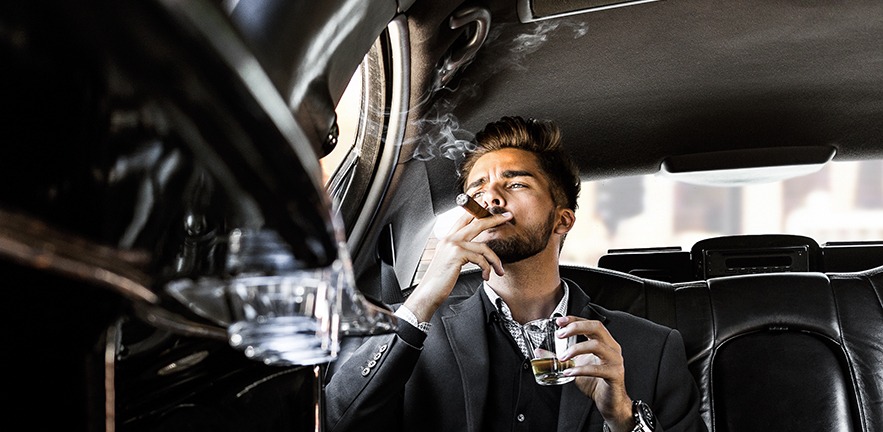New study co-authored by Jenny Chu of Cambridge Judge Business School challenges the popular portrayal of CEOs as overconfident risk-seekers down each and every highway.
CEOs (Chief Executive Officers) are frequently caricatured as cocky and narcissistic people who do it all their own way, with regrets too few to mention and no hesitancy in biting off more than they can chew.
A new academic study in the Journal of Management Studies – entitled “I Did it My Way” – challenges this common depiction of the CEO as an egotistical person whose inflated sense of self leads to bold, high-risk strategies that disregard external factors.
The study punctures this portrayal as overly simplistic and often inaccurate, distinguishing a CEO’s positive self-regard based on an authentic evaluation of their capabilities and personality with negative egotism defined by hubris, narcissism and overconfidence.
Tell-tale sign when confidence becomes overconfidence
“A tell-tale sign of whether a CEO has gone over the line between valuable confidence and dangerous overconfidence is when they start to disregard the feedback they are getting and pay less attention to what’s happening elsewhere in their industry,” says lead study author Christian Resick, Associate Professor of Management at LeBow College of Business at Drexel University in Philadelphia.
The study revolves around whether a CEO’s personality is characterised by high core self-evaluations (“CSE”) in which they form a positive but realistic view of their competence, and are self-assured, emotionally resilient, and responsive to changing situations. CEO self-regard rooted in high CSE or self-assessment is “conceptually distinct” from inflated sense of self based on narcissism and other negative characteristics, with different ramifications for the CEO’s company.
“Whereas high CSE CEOs are attentive to their firm’s competitive environments and calculated in their risk taking, CEOs with an inflated sense of self lead their organisations in pursuit of grandiose strategies with little regard for strategy-environment alignment,” the study says.
Analysing the personalities of 106 CEOs
The study is based on analysing the personalities and risk-related actions taken by a panel of 106 CEOs of publicly traded US companies over a six-year period.
“CEOs tend to have very confident personalities in order to deal with the different stakeholder groups looking to them for direction,” says Professor Resick. “The study draws a distinction between CEOs who push this over the edge because of overconfidence – which is the common depiction in both popular media and academic literature – and CEOs who listen and adjust their decisions based on the feedback they receive, tempering risk-taking to make decisions that set their company up for success.”
What risks do CEOs take?
The study concentrates on two key forms of risk:
- risk with the allocation of strategically important resources (such as R&D spending or long-term debt)
- strategic nonconformity (strategies in key operations that are novel and differentiated from rival firms). Strategic nonconformity involves sizeable risk because it is “costly, prone to failure and may garner skepticism from stakeholders” including investors and customers.
The study then tests various hypotheses based on the 106 public companies selected for the study panel – which was whittled down from more than 5,500 firms with sales exceeding $100 million by focusing on manufacturing companies that derive at least 70% of revenues from their dominant business and whose CEO remained in office for the first three years of the study timeframe (1998-2004).
How do you assess people who don’t like taking surveys?
The research assesses the personalities of CEOs (who are notoriously reluctant to participate in surveys) based on 7,000-word information packs – assembled from multiple sources including speeches, interviews and letters to shareholders, and evaluated by multiple raters on an 11-item adjective-based personality measure (confident, determined, optimistic, persevering, persistent, positive, stable, self-confident, dissatisfied, quitting, and self-pitying).
Resource allocation risk taking is evaluated on a metric encompassing research and development spending, capital expenditure, and the value of long-term debt. Strategic nonconformity is measured on deviation from industry-level means in six categories: R&D intensity (expenditure compared to sales), advertising intensity, plant and equipment newness, non-production overhead, inventory levels and financial leverage.
Self-assessing CEOs pursue risks depending on market traits

“One key finding of the study is that CEOs with high levels of self-assessment (or CSE) pursue risks in a differential fashion that depends on their particular market’s characteristics,” says co-author Jenny Chu, Associate Professor in Accounting at Cambridge Judge Business School.
“Put simply, the study found that CEOs with high levels of self-evaluations pursue risks more with the use of strategic resources in environments with a low concentration of firms (intense competition) and low dynamism (low uncertainty and instability). The study also finds that CEOs with high CSE levels tend to pursue strategic nonconformity in high dynamism environments, and to pursue actions similar to rivals in low-dynamism environments.
“Interestingly, the existence of a fast-growing market did not change the findings regarding high CSE CEOs on either risk taking or nonconformity. This could be because in situations where opportunities are abundant, broad strategic focus is important for identifying unique initiatives for a company.”
The late Professor Sucheta Nadkarni helped initiate the study
The paper’s genesis dates back to when Sucheta Nadkarni, who died in 2019, was a fellow faculty member with Christian Resick at Drexel University before she moved to Cambridge Judge. They agreed that a study exploring CEO personality and strategic risk would reflect their complementary interests: her focus on psychological influence on strategic management, and his research on leadership and personality.
How the findings can help both CEOs and their companies
“We began the study by looking at risk broadly, and then narrowed that down over time to focusing on risks in firm strategic behaviour,” says Professor Resick. “The study took a long time, with many twists and turns. We believe the findings will help companies, boards and CEOs to identify and stay on the right side of the line between confidence and overconfidence.” In other words: While Frank Sinatra famously sang that “I’ll state my case, of which I’m certain”, the study finds that CEOs who listen, adjust and adapt – who don’t always do it their way – often chart the best course down each and every highway.
The study
The study – entitled “I Did It My Way: CEO Core Self-Evaluations and the Environmental Contingencies on Firm Risk Taking Strategies” – is co-authored by Christian Resick of Drexel University in Philadelphia, the late Sucheta Nadkarni of Cambridge Judge Business School, Jenny Chu of Cambridge Judge Business School, Jianhong Chen of the University of New Hampshire, Wan-Chien Lien of National Yunlin University of Science and Technology in Taiwan, Jaclyn Margolis of Pepperdine University in Los Angeles, and Ping Shao of California State University in Sacramento.


